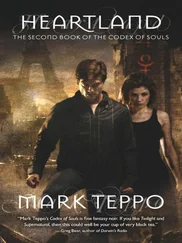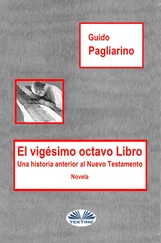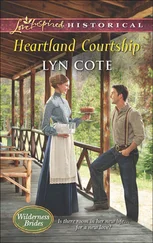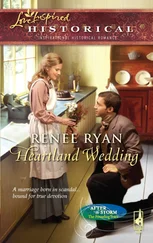It was three thirty when I told Rafael he could stay. He gave me a bear hug. It made me unexpectedly sad. Without knowing it, I had been thirsting for brotherly affection. Now that I had it briefly, I felt its painful lack. Since my father, Ezequiel, and Rafael had disappeared from my life, no other men had taken their places. Rafael felt beefier than the last time we had hugged, while my mother’s ashes were lowered into her grave. I did not want to cry in front of him, so I ran to the kitchen with the excuse of getting him more food. I’m not sure whether the ticklishness in my eyes and throat was impeding tears. It’s been so long since I last cried that I’m not sure I can recognize the warning signs, even retroactively. A few trips to the kitchen were needed before I was satisfied with Rafael’s stock of food and drink. He had enough for a week. To humor him, I promised I would leave before sunrise, as soon as my guest was gone. She was due to arrive any time and just stay for dinner, I explained. It was imperative, for her safety, that she did not see him, or vice versa. He fought me tooth and nail on this, wanting me to cancel the appointment, or at least leave with my guest as soon as she arrived. He did not want our deaths on his conscience. “You should have thought about that before coming here,” I said. That shut him up.
It was hard not to feel vindictive toward Rafael for having fallen from the sky at such an inopportune time. Once the warmth of the hug faded, the best I could do was to soften my vindictiveness with selected childhood memories, deliberately played over and over. This behavior modification exercise produced a semblance of kindness that Rafael mistook for the real thing. Luckily. He had learned about wines at his masters’ table, so I brought up half a dozen good bottles from the cellar. It was almost four thirty. Before going back to my bedroom lookout, I gave Rafael several blank notebooks and the Judge’s Mont Blanc pen. “Write your story,” I said. He looked at the writing materials with suspicion. Was he paranoiac? Did he think I was trying to extract a confession from him? I could be part of the presidential cabal. I could have phoned the authorities from the kitchen. I would not trust me if I were him. For the first time ever, I was afraid of Rafael. He had never lifted a finger against me or anyone else, as far as I knew. He was more the doormat type. But he would not have risen as high if he was not, in some way, a fighter. Besides, insanity makes people superhumanly strong, and he was not entirely sane. That coup story was a madman’s fantasy. Dumping a container full of political enemies in the Atlantic was a cheesy remake of Pinochet’s discharging them from a plane into the Pacific (a less costly option). True, the inconceivable had become ordinary. I could not tell which articles of our yo-yo Constitution were suspended at the moment. Years ago, the first time it happened, the country roared, or so the already tattered media said. Even I, still a child, sneered. Now no one cared. No one was keeping the score. A coup? In Aracnida, the Beautiful, nothing was too grotesque anymore to be true.
“You could write a letter to your children,” I said ingratiatingly, promising to deliver it. How many promises had I made already, none of which I seriously considered keeping? Rafael asked me to swear by my mother’s ashes to do it. He became agitated when I tried to weasel out of that. So I was forced to look him in the eyes and reluctantly swear on my mother’s memory to hand the letter to his daughter and son. Do broken promises have any consequences for the dead on whom you swear in vain? I didn’t think so, although I would not have been surprised if St. Augustine had a different opinion. He was a vindictive fellow himself. I decided to check the Confessions , and do whatever had to be done to lift the burden off their souls. I was, and still am, a cautious unbeliever.
Back in my room, I took a lightning-fast shower and changed my underwear and shirt. My travails since Rafael’s arrival had left me smelling sour. Through the binoculars, I saw a rabbit hopping across the driveway as it looped down the hill. The rabbit stood in the middle of the road, my advance lookout, the first that would hear and see McCabe’s car coming up the hill. I had cleaned and oiled a Mauser Gewehr 98. It was the only rifle in the Judge’s collection that was specifically made for war. The other seven were all antique hunting shotguns, even if humans were often killed with them, the earliest being an 1866 Winchester Henry Iron Frame Rifle. The Gewehr 98 had a glorious history. It was the German army’s standard rifle between 1898 and 1935. It killed or wounded Rupert Brooks, Apollinaire, and hundreds of thousands of others in World War I. I would have never used a hunting rifle: McCabe was not an animal, but all too human, a sublime woman, fit only for the company of poets and heroes. Honor, purity, and cleanliness were owed her. If I had had the guts, I would have chosen a sword; but I am a coward. I do not mind acknowledging it. On the contrary, my cowardice enhances my accomplishments. Never did someone do more with so little, morally speaking.
The rabbit was now a grey smudge on the road. The Mauser was back in the Judge’s gun cabinet, first from the left. It was loaded with the only two bullets I had found, one in each of its twin chambers. The second bullet was there in the unlikely event the first one missed, or did not finish the job. I did not want McCabe to suffer. The key to the cabinet was in the right pocket of my jacket. Target practice with the Judge’s rifle had been out of the question: too noisy, too risky to try buying bullets online, let alone in person. I was not concerned anymore about my future; I just did not want to be stopped from doing what I had to do. So, I had practiced my movements with the unloaded gun until I could do them with my eyes closed. Every day I slashed a few seconds from the sequence of unlocking the cabinet door, grabbing the Mauser, loading it, pointing at her forehead, and shooting. I would drive a bullet into her forehead, right above the nose, while she was sitting at the dinner table, between dessert and coffee. I would approach her from behind and to the right, call her name, and when she turned her head to look at me, I would pull the trigger. At such close range, about ten feet, I could not miss. I was a pretty good shot; I grew up shooting rabbits with Ezequiel, which my mother stewed and we all ate, except for Rafael. Even now, when I had not shot at a living creature in twenty years, my hands did not shake. I had been an avid carnival shooter in New York City, a provider of ugly stuffed animals to embarrassed dates. That had kept me sharp.
The flight from Chicago had arrived on time at one o’clock. Airport information would not tell me if McCabe was on board. It was six o’clock now. Five hours to drive the 180 miles from the state capital airport to the Judge’s house on a secured military expressway? Not impossible, but like Rafael’s operetta coup, unlikely. Even then, I did not doubt McCabe would come. That was my only certainty. Everything else, even the roundness of the earth, could be questioned. The dilemma was whether I should start roasting the venison at once, even if McCabe had not arrived. My faith in McCabe’s arrival, however absolute, lacked a precise time frame. I peered into the dark with the binoculars, not expecting to see anything, but to help myself think. My brain worked better when my eyes were focused on the light grey landscape turning into charcoal grey and then black velvet. I would start cooking the venison at 6:30 p.m. sharp. The outside lights went on, circling the house in gold. I again aired McCabe’s room and turned on the lights throughout the house, which now glowed with Christmas warmth. After removing a few tired flowers from the vases, I put the venison in the oven, at a slightly lower temperature, anticipating a longer cooking time than the recipe called for. To give McCabe time to get home.
Читать дальше












